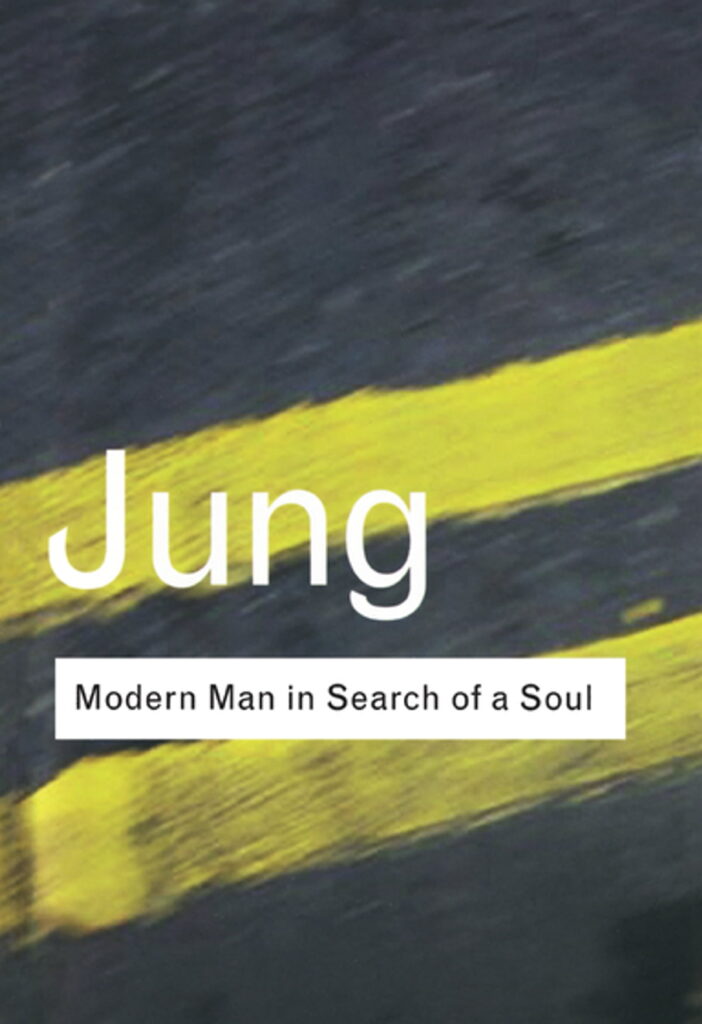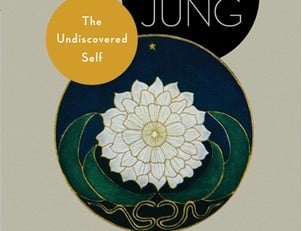Modern Man in Search of a Soul

THE JUNGIAN BOOK CLUB
NOVEMBER 2023 BOOK REVIEW
written by Byron J. Gaist
Carl Gustav Jung (1933) Modern Man in Search of a Soul
Translated by W.S. Dell and Cary F. Baynes
Published by Routledge, 2001, London and New York
Taken together with his autobiography Memories, Dreams, Reflections (1962), his Two Essays on Analytical Psychology (1928), and the collective volume Man and His Symbols (1961), this book can be considered one of the seminal introductory texts on Jungian Analytical Psychology. Anyone who wants a quick, well-written introduction to Jung’s ideas, can do no better than to read this brief volume of 250 pages, which is nothing less than a lightning-tour through the fundamental concepts.
The volume consists of 11 separate essays, which with a single exception were all delivered as lectures during Jung’s lifetime at the now-legendary Psychological Club in Zurich. The essay which was especially written for this volume by an editorial request, was ‘Freud and Jung – Contrasts’, a rather bold venture by Jung into differentiating his approach from that of the founder of psychoanalysis in Vienna.
The essays contained in numerical order are as follows:
- Dream Analysis in its Practical Application
- Problems of Modern Psychotherapy
- The Aims of Psychotherapy
- A psychological Theory of Types
- The Stages of Life
- Freud and Jung – Contrasts
- Archaic Man
- Psychology and Literature
- The Basic Postulates of Analytical Psychology
- The Spiritual Problem of Modern Man
- Psychotherapists or the Clergy
The titles of the essays by themselves betray the general and broad-ranging character of the text, which we at The Jungian Book Club will have the opportunity to study in detail: it is essentially a mini-course on Analytical Psychology.
The text covers a broad array of subjects such as Gnosticism, theosophy, Eastern philosophy, and spirituality in more general terms. The first part of the book is more practice-oriented, dealing with dream analysis in its practical application, the problems and aims of modern psychotherapy, and also his own theory of psychological types. The middle section then addresses Jung’s beliefs about the stages of life (in particular puberty, youth and midlife) and archaic man – an essay where the primitive human mindset is contrasted to that of the ‘modern man’ of the book title. Moden man lives in the present, both in the sense that he is aware of what occurs from moment to moment, as is ever more evident in our world of constant real-time news and social media, but also in the sense that he is unhistorical – he looks back upon the practices of the past and finds them mostly appalling.
Jung also contrasts his own theories with those of Sigmund Freud. In the latter parts of the book, Jung discusses psychology and literature, and devotes a chapter to the basic postulates of analytical psychology. The last two chapters are devoted to the spiritual problem of modern man in the aftermath of World War I, a development which he compares to the flowering of Gnosticism in the 2nd century C.E.. Finally, Jung discusses and investigates how psychotherapists are like, and unlike clergy.
The book therefore ranges in its discussion from the applied and practical aspects of Jungian psychology, all the way to the philosophical postulates and spiritual premises and implications of his theory. Jung offers a third perspective on humanity’s spiritual development and psychic evolution at this crucial time period, one which represents a “middle position” as translator C.F. Baynes calls it, between the extremes of traditional religious faith and scientific rationalism. Given the date of publication coinciding with the year Hitler rose to power in Germany, it is a shame that the hopeful message of the book did not seem to reach the necessary minds, but it has nevertheless become a testament to Jung’s overall vision of a more conscious humanity.





Comments (5)
I’d love to participate.
Kaija, you’re welcome to. The link to the Jungian Book Club is at the end of the review above.
I have noticed in recent years more extraverted individuals, including therapists, drawn to Jung’s delicate, rich, and complex ideas. Would you say the climate of these book clubs is sacred and consistent with the material, that is inwardly anchored, or is it more “American”? Thank you.
I would love to participate. I am a CG Jung scholar, with focus in synchronicity. Thanks for your wonderful article. Want to connect
Thanks for this recommendation! I’ve read Jung’s autobiography and am keen to continue learning more about his work. I came across another terrific book by Claire Dunne called, Carl Jung Wounded Healer of the Soul, which I recommend too.